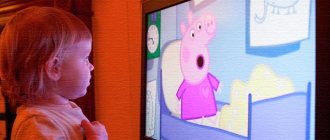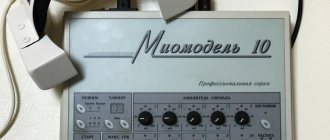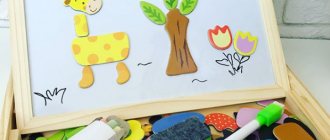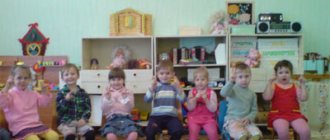Speech development of children 5-6 years old: norms and deviations
Most parents realize that their child needs consultation with a speech therapist when preparing for school. At this age, children begin to be prepared to master reading and writing skills. For this you need a base - competent speech. The classes become more complicated, and some children have difficulties at this stage.
Developmental activity
Norms for the development of children's speech at the age of 5 to 6 years
To determine whether a preschooler has a delay in speech development, you need to know what is the norm by the age of five or six:
- the child communicates through detailed sentences using facial expressions and gestures;
- uses generalizing words in speech;
- correctly uses numerals, adverbs, pronouns, conjunctions, particles;
- a preschooler learns to use participial and participial phrases;
- there is an extensive vocabulary;
- masters word formation skills (for example, diminutive forms of words);
- sound pronunciation is almost formed;
- the syllable structure is fully formed;
- A preschooler can make up a short descriptive story based on a picture.
Note! During this age period, children's speech is already as close as possible to that of an adult.
Errors occur if the child talks about a phenomenon unfamiliar to him or uses a new word. The sound pronunciation side is almost completely formed: in the fifth year there may be disturbances in the pronunciation of sonorant sounds - R and L.
At this age, a preschooler knows how to use intonation, so theatrical performances are staged with children. At the age of six, he already remembers poems well and can retell short stories. The level of development of children's speech depends on the efforts that adults make to raise the child.
Reading
Symptoms of delayed speech development at 5-6 years old
If in the sixth year a preschooler communicates with simple, uncommon sentences or phrases, and the pronunciation of most sounds is impaired, then parents should contact a speech therapist. Adults have difficulty understanding children's speech; it is inexpressive; the child has difficulty memorizing poems and retelling short texts.
Note! In children with speech disorders, the passive vocabulary significantly exceeds the active one. However, he may use some words inaccurately.
The vocabulary mainly consists of nouns, with a smaller number of adjectives and verbs. Phrases and sentences are ungrammatical: agreement norms are violated, prepositions and conjunctions are omitted. If adults notice the above signs, then it is necessary to make an appointment for speech therapy.
Speech development program for preschoolers according to O. S. Ushakova.
Cities
This is perhaps the most famous game of all time in our country. The first player names any city, the next participant comes up with a city starting with the final letter of the previous one, for example: Moscow - Arkhangelsk - Kursk.
Alternatively, you can make the game more difficult: pronounce the names of cities in a certain country.
Another city game has something in common with the game “I know...”, where the continuation of the initial phrase “I know” can be completely different options: five city names starting with the letter P, five cities in Germany, five cities in Siberia, etc. The main thing is to name all five without getting confused or pausing.
Information for parents
Adults are role models and a source of knowledge for children. Therefore, it is important that parents take an active part in children's development and follow all recommendations of teachers.
Self-diagnosis of speech delay
The speech therapist conducts an examination in kindergarten and selects a group of children with whom he will carry out correction. But you shouldn’t wait for your child to sign up for lessons. Parents should be able to independently diagnose his speech development.
- The child is asked to describe the object being shown - a toy or other object.
- The adult describes the object, and the preschooler must name it.
- You need to check the expressiveness of speech: ask to speak sentences with different intonation and pitch of voice.
- The child is shown a picture and asked to describe what is shown in it. If he has any difficulties, the adult asks leading questions. During the story, you need to pay attention to the composition of the sentence, vocabulary and general expressiveness of speech.
- Parents should pay attention to the grammatical design of the sentence: agreement of words, use of conjunctions, particles, prepositions.
- During diagnosis, the formation of sound pronunciation is assessed.
Diagnostic conversation
Important! When inviting a child to complete tasks, an adult should give an example using his own example. For example, he asks a preschooler to name a word and first pronounces it himself.
In older preschool age, some mistakes are normal, because at six years old, not all children immediately absorb a large flow of information. But with the help of didactic games it is possible to cope with speech errors. Such exercises will also be useful for children with normal development.
How to develop speech in a 5 year old child
It is worth purchasing books by the following authors: Gerbova V.V., Kuznetsova E.V., Razumovskaya Yulia, Tikhonova I.A., Ushakova O.S. In their books, parents and teachers will be able to find lesson notes for speech development for 5-6 year olds that meet the requirements of the Federal State Educational Standard.
Specialists speak at parent meetings, where they explain in detail how to perform the exercises correctly and issue memos with detailed recommendations. The main goal of tasks in working with this age category is to develop coherent logical speech and form a grammatical structure.
The following exercises should be included in the file cabinet:
- selection of synonyms and antonyms;
- classification of objects according to one criterion;
- guessing words from descriptions;
- Declension of words by numbers and cases;
- making sentences from words;
- explanation of the meaning of proverbs and sayings;
- memorizing poems;
- performing articulatory gymnastics.
Speech development lesson
Important! When retelling a fairy tale or poem, pay attention to the expressiveness of speech and the clarity of pronunciation of sounds.
Games for the development of coherent speech in the middle group - conducting educational activities
Talking about the world around you while walking has a beneficial effect on speech development; conversation with the child about how his day went and other topics of interest to him.
Educational online games are popular: in this case, adults do not need to prepare visual material and think through the exercise. But you need to ensure that the time spent at the computer does not exceed 10 minutes. It is better to alternate information technologies and oral exercises.
How can games help?
The game form is most favorable for mastering various skills, including speech. Properly selected games help improve various aspects of speech and communication culture.
The main directions of speech development for older preschoolers in the form of games:
- intonation and dynamic expressiveness of speech;
- correct tempo, rhythm;
- clarity of pronunciation;
- setting the correct stress;
- the ability to put words into correct grammatical forms;
- the ability to clearly and completely formulate your thoughts;
- vocabulary enrichment;
- development of monologue and dialogic speech;
- formation of prerequisites for mastering written speech.
At the same time, it is important that the child perceives all tasks as a call to participate in the game, and not a boring activity (repeat, give an example, find). Accordingly, the child’s motivation for play activities and interest in them is much higher than in lessons on speech development. This means the effect will be more noticeable.
In the process of playful communication with a preschooler, do not “suppress” his emotions and feelings, give him the opportunity to express them. Otherwise, the child’s need for communication as such will gradually decrease, which means that speech activity will also decrease. If at some point the child cannot find the right word, let him express his thought using facial expressions, gestures, and plastic movements.
Synonyms
This is a game for schoolchildren and their parents. Any word can be invented (preferably a verb). Participants in a circle begin to pronounce its synonyms. There should be no pauses, so the one who stops leaves the game. The last remaining participant wins.
The chain of synonyms will be longer if figurative concepts are inserted into it, for example: run - fly, work - hump, etc. You can also use not only one word, but also expressions that will reflect the same meaning: cry - shed tears, gather - wash your skis.
From cross to parallel
Everyone sits around on chairs. Take a phantom (any item) that will be convenient to transfer. The presenter begins the game by passing the forfeit to any participant, with the words: “From the cross to the parallel.” The participant must pass it to any other player, correctly saying: from the cross to the parallel, or from the parallel to the cross. The players' task is to guess what kind of system operates in this game: when they are crosses and when they are parallels.
In fact, the answer is extremely simple: when a person sits on a chair with his legs crossed, he is a cross, and when both of his legs are parallel, he is a parallel. Therefore, the same participant can be both a cross and a parallel dozens of times.
Warn the players so that those who are the first to guess about the game system and are convinced that they really understood everything correctly do not immediately tell the other participants about it. You can only say: “I got it,” continue to play and wait for others to guess.
Puzzles
Many games that develop verbal or auditory thinking are oral. You can wish for a certain object, but answer the question only “yes” or “no”. Let's say I wished for something that was on my table. And the child begins to ask: - Is it big? I say: - No. - Is it bigger than a glass? - No. - Is it square? - Almost. - Is it iron? - No. - Is it wooden? - No. - Is it rubber? - Yes .− Is it black?− No.− Is it white?− Yes.− Is it an eraser?− Yes, it is an eraser. You guessed right, well done. Now you tell me a riddle, and I will ask. You can riddle some simple things and suddenly it turns out that they are not so easy to guess even for an adult, although the riddled object is completely simple, everyday. You can make verbal riddles. But not the classic, folk ones, which everyone knows and which are published in collections: the girl is sitting in prison, and the braid is on the street. Modern children have not seen how a carrot grows, so they cannot guess what kind of braid it is on the street, why the girl is sitting in prison and why this has to do with carrots. That is, they are ready to learn both this text and this answer. But they can’t relate, they didn’t see it, it’s a difficult metaphor. By riddles I mean something completely different. You can describe an object by naming several of its characteristics and giving a definition. For example, an animal that meows. − I wished for a striped animal that eats grass. The child says: − Tiger? − Not a tiger. A tiger doesn't eat grass. And this beast also has hooves and a mane.− Ahhhh, horse!− Striped! Or I can say:− Yes, only the name of the beast begins with the letter “z.”− Striped horse with “z”... A- ah, zebra! Or I can say: − Sour, yellow and oval. Child: − Oh, I know, it's a fruit. − Yes, fruit. Which one then? They also put it in tea. - Yeah, yellow, lemon! Or: - Red, round, they put it in salad. I could mean a tomato, but the child says: “Radish.” Great, that's good too. It is useful to come up with such riddles. No less useful than guessing.











